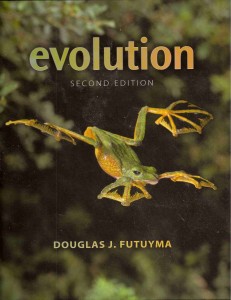
This historical novel, published by Spartacus, 2009, has been applauded by e g professor Kåre Lunden (“a picture of life in the 13th century”). Review to follow.

This is a good conventional take on science history, with little problematization of gender or who was heard or not heard.
Very well written “within the frame”, not a good guide to the framing.
– Preliminary report, one third read, March 2011

This is one of the few books I have recieved in the last year that I have cast into the category “a difficult read”. This is not a common category in my case, but some books end there.
Another case is Elliot Sober: Evidence and evolution, 2008. In both cases I wonder, is it necessary to present the arguments in such a convoluted and difficult way. I tend to put them down, after reading some sentences. Although both authors have important things on their mind.
This may be just my limited reception, I will get back, but it remains my early impression of these works.Norrie, for example, seems unenlightened considering gender studies. On page 132 he restates his general position, discussing how Bhaskar’s philosophy coincides with that of Habermas, figuring “equality, liberty and fraternity” as main agent – with no further reflection concerning the possibly quite slanted ideal of “fraternity”, although he does mention that “feminists” have had something to say here .

Douglas J. Futuyma’s Evolution is an impressive work on many accounts, well provided pedagogically with colour illustrations and examples, interesting to read.
The research sensibility and evaluation seems good. Mainly, this book has a lot of new information, conveniently ordered, and often (but not always) well explained. More to follow.

Englund, Peter 2008
Stridens skønhet och sorg. Førsta varldskriget i 212 korta kapittel
Atlantis, Varnamo
For understanding the last part of the 20th century, including the second world war, the earlier part including the first world war remains an enigmatic background. Here is a good research-based update, written to get the reader into the mood of 1914-18, by a pioneer Swedish historian. I have read the first third of the book, and although it is a bit too wordy, it gives a good picture.

Who is going to bear the costs, of Libya divided? Scenario one, a victorious Arab democratic revolution. Scenario two, some tyrants resisting, mixed picture, civil war. What is the best solution? The first, most of us would think, but how can it be achieved? The young generation “new configuration” of the new Middle East was created by the revolutions in Tunis and Egypt – but even there, each inch of progress is hard-won. In a recent event, pro-democracy protestors in Egypt, demanding their right to overlook the security service, were attacked and beaten. Should the Arab world face this democracy issue alone, or should the rest of the world support them? The answer obviously is yes, this is a global issue. We are not living in fascist times – are we? But then the question is, how to support the democratic struggle, with many divided voices. A debate going on while the democracy fighters of Libya and elsewhere are dying, taking the load for the world community. Unorganized idealists against a fascist thug army. Do we want a repeat of the Spanish civil war?

Gene Wolfe is one of the main voices of science fiction today. Watching current world news, especially the democratic struggles in Tunisia, Egypt and Libya, I could not help thinking of his torturer and torture society portraits (e g The Shadow of the Torturer, 1980), and I have ordered two of his newer books, volume one (On blues) of a trilogy, and a historical work (Latro in the mist). We shall see. Whatever I read, from now on, is more influenced by the perspectives of Edward Said, Jonathan Littell, Victor Serge and other authors widening my understanding of democracy, some of them described in this blog.
PS A good introduction to Edward Said (e g Culture and imperialism, 1993) and post-imperialist culture, as it currently applies to the “Arab” world system issue, is Robert Fisk’s The Great War for Civilization (2006). For understanding more of the crucial “dignity” aspect, cf. Evelin Lindner and others on dignity and humiliation: http://www.humiliationstudies.org/
On humiliation, see further harassment and mobbing research – this is a wide research area. For world system theory cf Immanuel Wallerstein.

It is not often that broad new research on men, masculinities and gender equality is published. Here is a new case.  An initial research report “Evolving men – Initial Results from the International Men and Gender Equality Survey (IMAGES)” is now available from
An initial research report “Evolving men – Initial Results from the International Men and Gender Equality Survey (IMAGES)” is now available from
http://www.icrw.org/publications/evolving-men
The report is based on a survey in seven countries (Brazil, Chile, Croatia,
India, Mexico, Rwanda and South Africa). The household and life course oriented survey questionnaire was to a great extent based on the “Gender equality and quality of life” survey questionnaire developed in Norway 2007.
Despite major socioeconomic differences between the countries, often influencing the results, the initial report surprisingly often confirms the main Norway survey results regarding gender equality. This includes the importance of material context and actual practices. The new report also sometimes offers better data, based on method improvements. A worrisome note concerns gender oppressive attitudes among some groups of men (especially, India).

How many people should die in the streets, before the world stops the killing? Where is the UN, stopping potential genocide in Libya? Is a revolution for democracy just a matter for a country on its own and isolated? Should a ruler be allowed to bomb his own people, Guernica style? Are we powerless to stop current-day fascism?
The revolutions in the Arab world requires the ability to speak with – even – the old dictators, the old fractions of power. They are not “mad dogs”. However if they want to participate at the speaking table, rather than stay in prison, they must stop their repression – right now.

As many, eventually, have noticed, Mike Hugg’s Neon Dream (1975) is a remarkable and overlooked record. Cf http://prognotfrog.blogspot.com/2010/04/mike-hugg-hug-neon-dream-1975.html
Broadly speaking it sums up a substantial part of the 1960s pop revolution experience, centred on the Mannfred Mann band case, and perhaps more intelligently, or at least as interestingly, reworked in Hugg’s case as in the case of Mannfred’s Earth Band. Hugg was more jazz-oriented, but perhaps also more true to the band’s prog roots. As on his two first albums, the cuts are often long and involved, yet less bleak, they often rock seriously, and deliver their pop message too.
I am in the unique position of having a master tape copy of this record, copied directly to tape. I got this copy tape in the late 1970s, often enjoying it played back on my Revox A77. What does a digital version of the analog master tape sound like, compared to digital version of vinyl records?
The object of this test is a digital SDS recording from the analog copy played back on the (possibly somewhat rusty) Revox analog tape recorder, using the Korg Mr-1 recorder, compared to vinyl digital recordings.
Not to surprise you – it sounds glorious. The limitations are interesting too. It sounds great within a more narrow soundscape than the one attempted by later technology. I have to overlook a certain amount of missing bass, and tune in on the middle tone. Some treble is missing too, but this is not as noticeable, since the sound coherence on the mid level is so good that it mainly makes up for it. The sound is more free and natural than what I often associate with digital and even SACD sound, more dimensional, even if it is in a limited sound envelope.
On my test player (Cowon D2) I have Passport: Looking Through (1974) after Hugg. It is a better but also more slick recording. It is hard to evaluate sound differences across recordings, but my main impression is, as many times before, that the “going through vinyl” method works remarkably well – considering that it should not work so well. It should clearly detract from the sound, but it doesn’t. Instead it creates a somewhat different kind of sound, not clearly inferior to the master tape copy, in my case. Some of it may be “being used to it”. The vinyl sort of “prolongs the case”, while the master tape has it “right there”. With a somewhat inferior master tape case, and a good vinyl reproducer, it is hard to decide, but this remains an impression.





